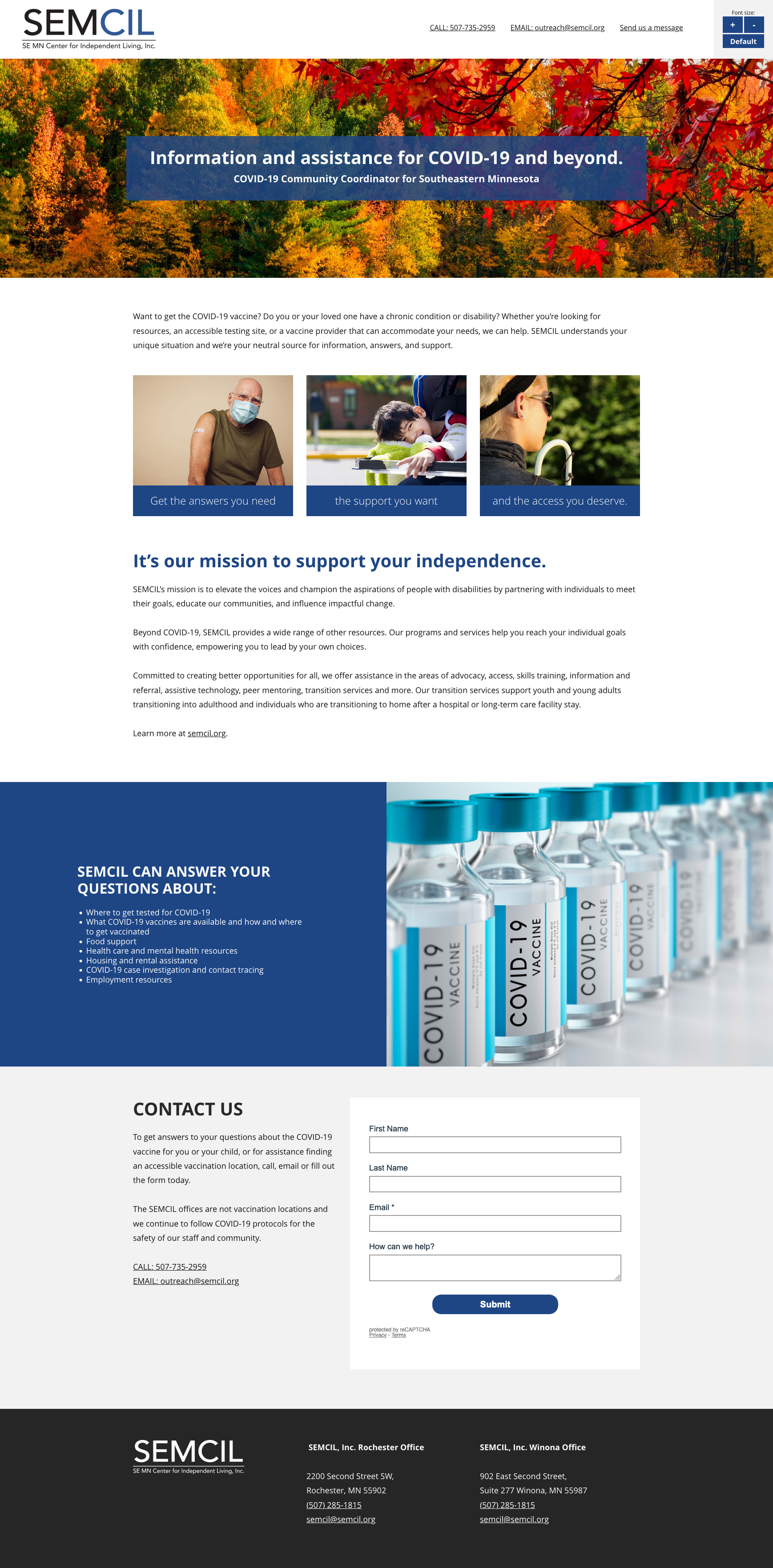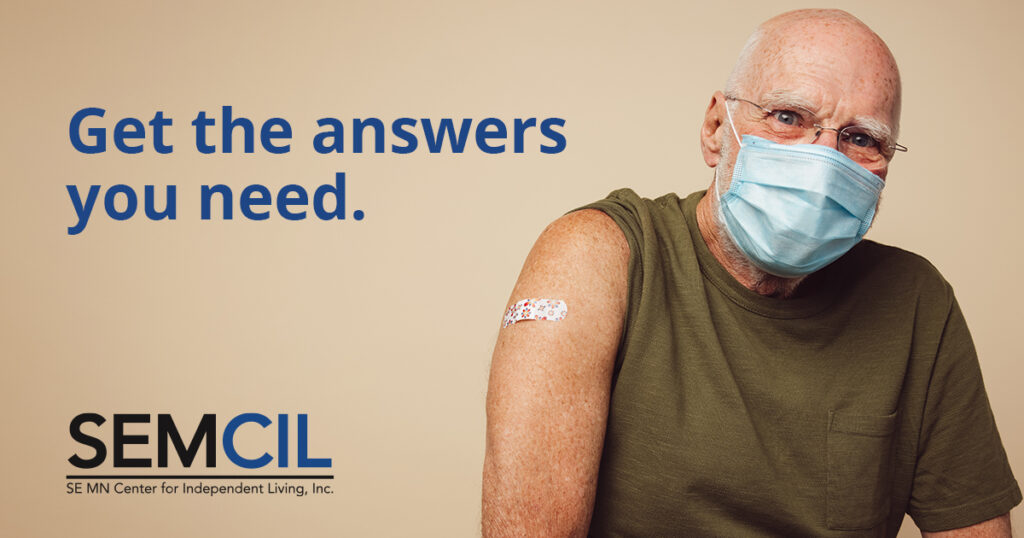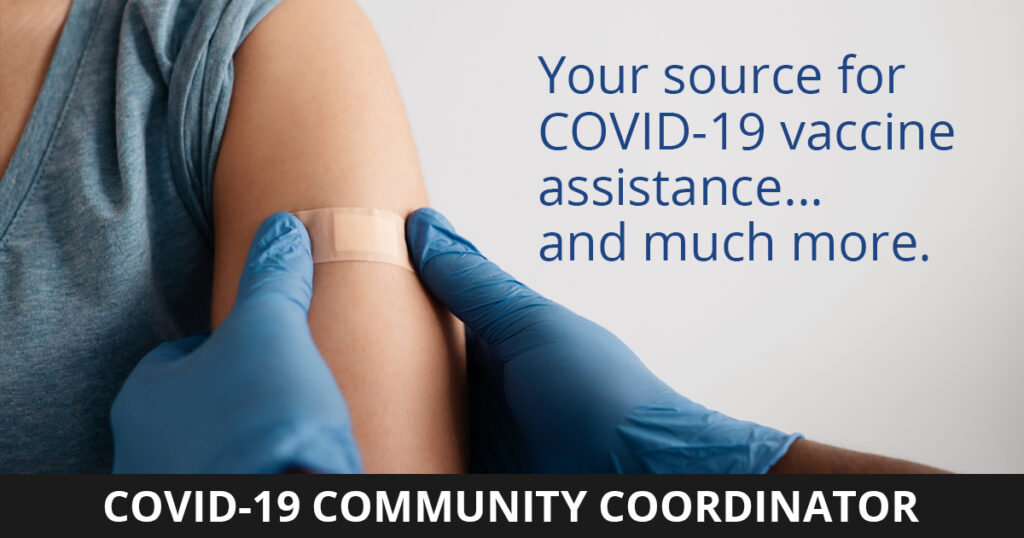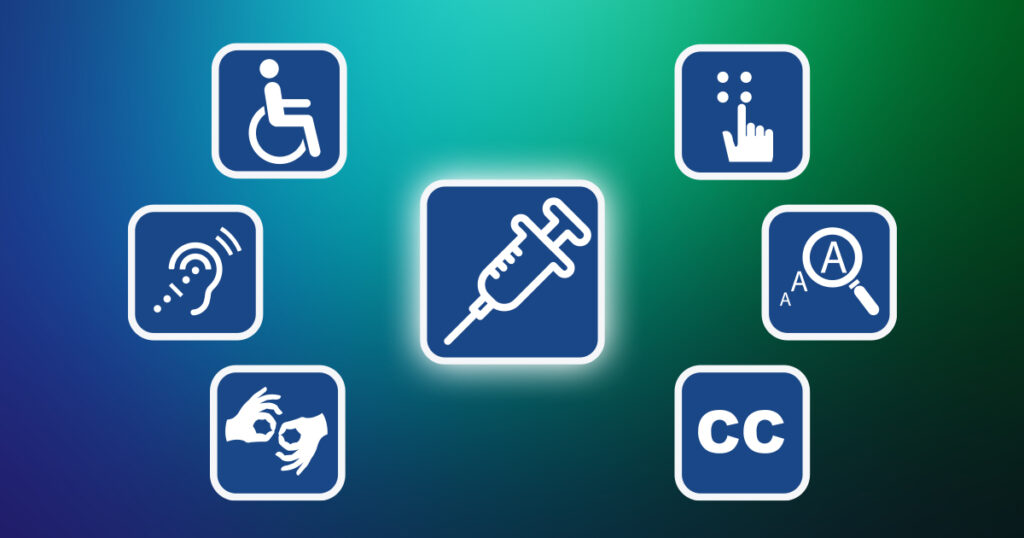Southeastern Minnesota Center for Independent Living (SEMCIL) provides a wide range of services to the communities they serve. This nonprofit is dedicated to creating and sustaining independence for all persons with disabilities.
When they received a grant from the MN Department of Health to be a COVID community coordinator, they needed help getting the word out.
In addition to using these funds to promote their status as a COVID resource center, they saw an opportunity to get noticed by people who could benefit from all their services. But at least 50% of the messaging had to be about COVID.
“No problem”, we said. And a digital marketing campaign was born. We created a variety of ads and managed their placement on Facebook, Google, and a premium digital display network, with all traffic driven to a special landing page.
Things got a little tricky with the digital display network advertising. We started with geography, of course, but due to privacy and ethical issues, we couldn’t target people by medical condition or disability status. Instead, we created ads that contained visual cues that signaled the audience they were trying to reach. In the end, these ads saw a higher performance rate than the benchmark and a lot of ad impressions were made in a relatively small geographical area, which should make for a positive long-term impact.
For our part, we embraced the unique challenges this campaign presented, and we enjoyed seeing it come to life for our client.


![cat[&]tonic](https://cat-tonic.com/wp-content/uploads/candt_logo-rw.png)









